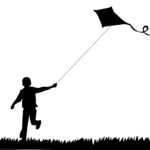“Okay.”
“It’s just that sometimes I spend so much time living – smiling falsely, repressing every pain I feel, making myself small so no one can pity me – I do all these things, and it becomes too much.
“Sometimes the mere thought of getting out of bed cripples me with fear. It’s not a fear I can explain, yet it’s always with me. I carry it everywhere and no one knows it’s there because they can’t see or quantify it. And sometimes people don’t understand what they can’t measure.”
“That’s what you meant when you said the letters quantified your shortcomings?”
“Yeah. The failed artists, too; meeting them made things clear.”
“Yeah? How?”
“They reminded me of my father.”
“Oh.” He blinked, stunned.
“Mostly I was just trying to develop a drinking problem or promiscuity. You know, to elevate my depression so I could write an ‘authentic’ story about the freaking human condition. I tried to plot the trajectory of my life, to see where I would be in five years, ten, forty-seven. After I met the artists I knew exactly where I would be. It didn’t seem right to keep living even after I knew where it would end. It was the same with my father.”
“I didn’t know your father wanted to be a writer.”
“He didn’t. I don’t think he wanted to be anything, really. He just tried to stay alive, and dignified, and still alive.”
He shook his head. “How can someone not want to be anything?”
“I don’t know how it happens or when it happened with him. But it did.”
“He told you this?”
“No. I saw it.”
“How–”
“I found a picture of him that was taken when he was twenty-four. It was taken shortly after he was hired as an apprentice at a mining plant. In the picture, he looked both elated and dejected. At first, it didn’t make sense. Yet there the emotions were – coexisting on his face.”



